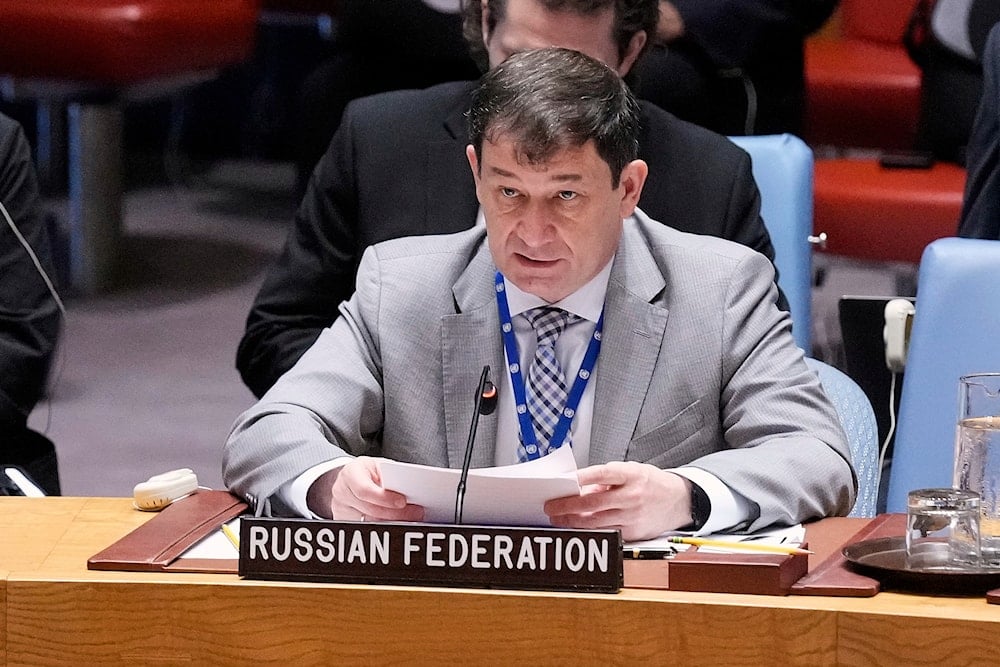Russia urges global action to curb AI use by terrorist groups
Russia calls on the United Nations to take proactive steps as ISIS and its affiliates utilise artificial intelligence for recruitment, propaganda, and attack coordination, raising global security concerns.
-

Russia Deputy UN Ambassador Dmitry Polyanskiy addresses a United Nations Security Council meeting, Monday, June 30, 2025 (AP Photo/Richard Drew)
Russia has urged the United Nations and its member states to take decisive and proactive measures in response to mounting evidence that terrorist groups, particularly ISIS, are increasingly utilizing artificial intelligence (AI) to enhance their operations.
Speaking at the UN Security Council’s regular biannual briefing on the threat posed by ISIL/Da'esh, Russian Deputy Ambassador Dmitry Polyanskiy referenced the Secretary-General's 21st biannual strategic-level report, which revealed growing signs of AI exploitation by terrorist organizations.
"The [UN] report contains worrying signs that ISIL and its affiliates are actively using modern technology, including AI," Polyanskiy stated. "We are convinced that in this area the UN and member states must act proactively."
Key findings from the biannual report
The report underscores that the threat posed by ISIS and its affiliates remains pressing. Despite sustained counterterrorism efforts, these groups have shown adaptability and resilience. Sub-Saharan Africa, in particular, has emerged as a major hub for ISIS activity, with an estimated 100 million uncontrolled small arms concentrated in various crisis zones.
How terrorists are using AI technologies
One of the most alarming trends is the use of AI-powered systems to automate recruitment. ISIL's Khorasan Province (ISKP) has deployed sophisticated AI chatbots and algorithms that analyze user behavior to personalize radicalization approaches. These tools also help overcome language barriers, facilitating outreach to a broader demographic.
In addition, terrorists are using generative AI to create high-quality, multilingual propaganda content at scale. Deepfake videos, manipulated imagery, and targeted messaging are being deployed with increased precision. There is evidence that African affiliates like the Islamic State West Africa Province (ISWAP) have begun integrating these capabilities into their media strategies.
AI is also enhancing terrorist networks’ ability to plan and coordinate attacks while evading conventional monitoring systems, which marks a significant evolution from earlier, low-tech operational models.
Russia calls for proactive international response
Russia's representative emphasized that the international community must not wait for these threats to fully mature before taking action. "Proactive measures" are necessary to prevent the further proliferation of AI technologies in terrorist hands.

 2 Min Read
2 Min Read










